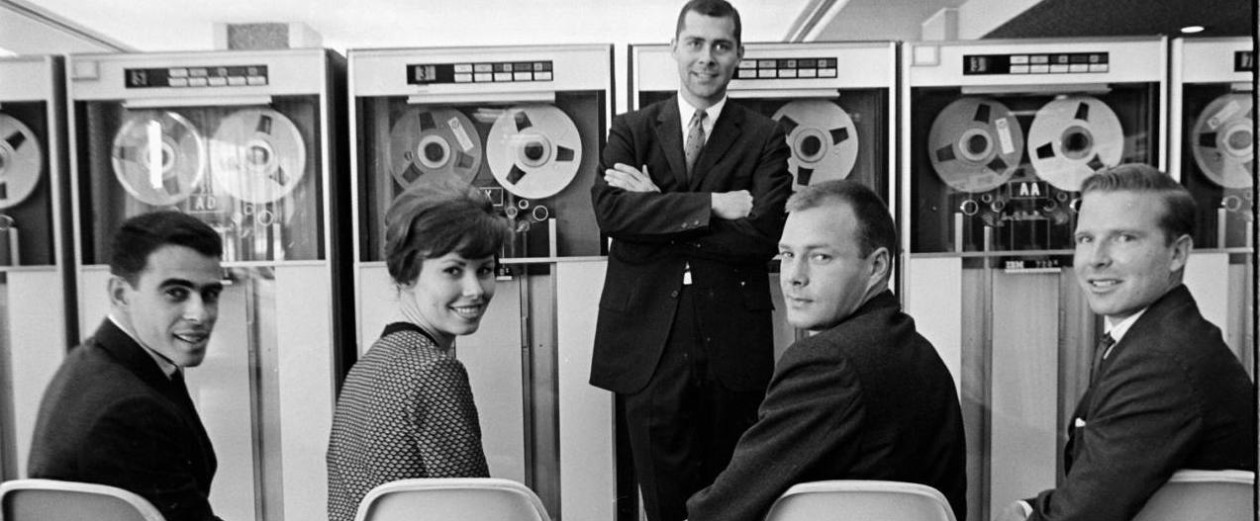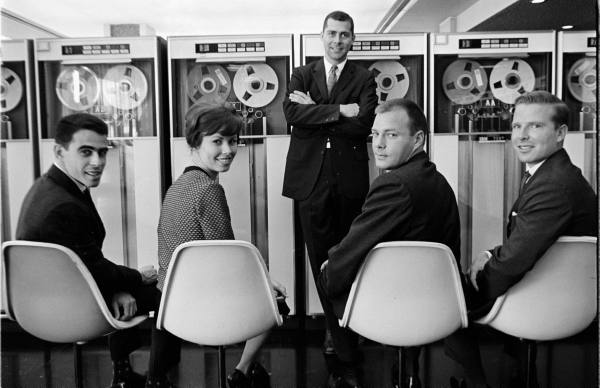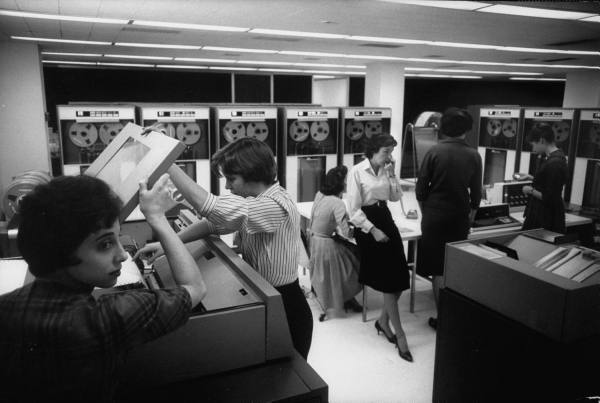A young scholar whose work I have been keeping an eye on for many years has just finished her dissertation on the history of programming. The scholar in question is named Joline Zepcevski, and the dissertation is entitled “Complexity & Verification: The History of Programming as Problem Solving.” For those of you with access to the Proquest Dissertation database, do check it out. Joline did her PhD at the University of Minnesota, and her advisor was the renowned historian of computing Arthur Norberg.
Category Archives: Extras
The Queen of Software
This clip of Grace Hopper’s 1986 appearance on the David Letterman show has been making the rounds of the Internet. She talks about working on the Harvard Mark I, and Letterman refers to her as the “Queen of Software.” At this point, Hopper was 80 years old. As always, a remarkable presence…
Programmers on Screen
There are a number of decent documentaries on various aspects of the history of the computer, but not many on computer programmers. Among other things, programming as an activity is difficult to represent in ways that are visually interesting.
Nevertheless, I came across a work in progress on the origins of APL that looks intriguing. The producer/director Catherine Lathwell is the daughter of Richard Lathwell, one of the original APL developers. There is also Top Secret Rosies, which I was involved with, as well as To Dream Tomorrow, an excellent film about Ada Lovelace. There are also a host of related films that are not histories of programming per se, but which are nevertheless relevant.
The world still awaits its great film about the programmer heroes of the computer revolution, however!
What’s in a name?
In the recent issue of the IEEE Spectrum, Ada Brunstein has an interesting piece on the significance of job titles in which she uses Google Ngram Viewer to explore changing trends in the language used to describe computer programmers. She references my research from The Computer Boys and talks about some of the now-forgotten alternatives that were proposed during the 1960s, which included “flow-charts‑man, comptologist, and even turingineer. More serious options included informatician or datolotist.”1 Ada Brunstein, “Engineers: What’s in a Name?”, IEEE Spectrum (February 2012)
My own particular favorite was “applied epistemologist.”
- 1Ada Brunstein, “Engineers: What’s in a Name?”, IEEE Spectrum (February 2012)
The IBM Story
In preparing a recent talk, I came across this image from a 1962 article in Life Magazine on IBM. It captures nicely the stylish enthusiasm and modernist appeal of the computer professions that are too often lost in the focus on eccentric and scruffy hacker-types. Computing in the 1960s was the place to be.
Here is another of my favorites, this from 1961, featuring an computer room full of female computer operators:
The Life Magazine archive in Google images is an excellent source for images of computer people.

 Follow
Follow
